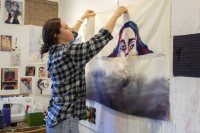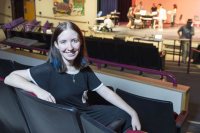
Taking a page from the silver-linings playbook, a group of Bates photography students found unprecedented opportunity in their transition to remote learning, begun on March 23 due to the COVID-19 global health crisis.
In the weeks before the big pivot, students in Elke Morris’ course “Perceptions and Expression” were working on an assignment in which they could choose to execute photos in one of two styles, documentary or directorial.
Documentary photography functions as “witness, testimony, and evidence,” says Morris, a senior lecturer in art and visual culture. A famous example is the Farm Security Administration’s Dust Bowl photography of the 1930s.
In a directorial approach, the photographer “creates, consciously and intentionally, events to photograph,” explains Morris.
The students’ photographs give viewers a “glimpse into their adjusted lives, with their families and in their neighborhoods.”
Both approaches worked well in the changed situation, most students choosing the documentary approach. “Having to adapt to the new situation with COVID-19, it is not surprising that many students chose to document and express the significance and impact of those changes,” she says.
As a body of work, the photography is “potent and revealing,” she says, giving viewers a “glimpse into the students’ adjusted lives, with their families and in their neighborhoods. I was especially struck by the sense of continuity but also sadness perceived in these images.”
Here’s a selection of those images.
John Loftus ’22
Hometown: Palo Alto, Calif.
Major: Neuroscience; art and visual culture (studio art)
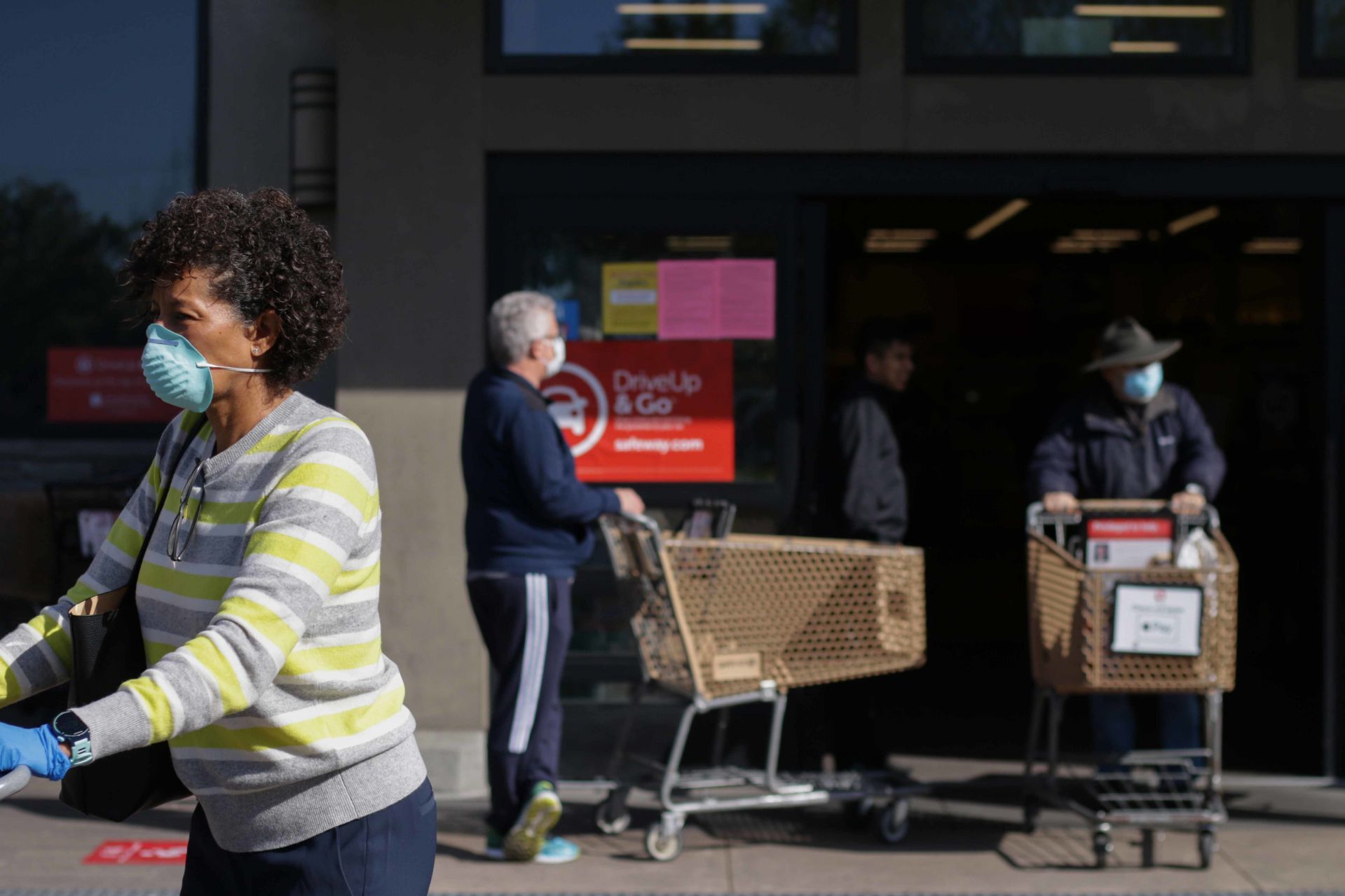
Wearing face masks and gloves while social-distancing, shoppers come and go from a Safeway during the COVID-19 pandemic in Mountain View, Calif., on April 3, 2020. (John Loftus ’22)
“This photograph was captured as I was traveling around my hometown. I was struck by the disruption of ordinary life due to pandemic, especially for the elderly.” — John Loftus ’22
Cecely Sterling-Maisel ’23
Hometown: Berkeley, Calif.
Major: Psychology (prospective)
“The quarantine has been a stressful and chaotic time for most people, me included. I have been lucky to be able to engage in more lighthearted activities. Board games have played a part in making the best of a stressful situation and using the extra time to relax and have fun.” — Cecely Sterling-Maisel ’23
Anna Gouveia ’22
Hometown: Jenkintown, Pa.
Major: Biological chemistry; art and visual culture (studio art)
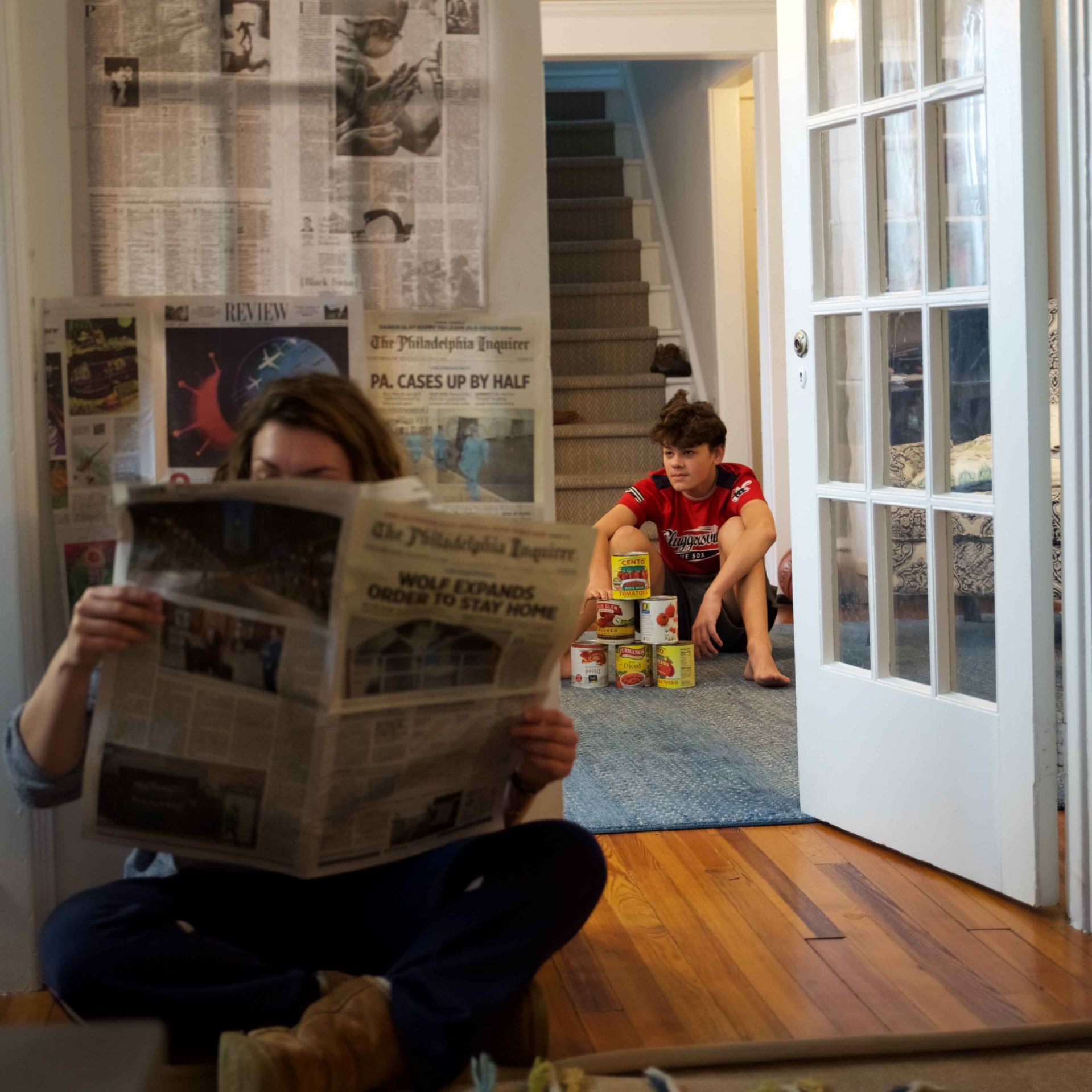
Siblings Alison Gouveia and Will Gouveia pose in the living room of their home in Jenkintown, Pa., on March 25, 2020. (Anna Gouveia ’22)
“This photo, for the directorial assignment for our class, was taken when every day brought heaps of alarming, quickly changing information. As quarantine continued to be extended, I chose to pose my siblings in a way that expresses common concerns about food availability and mental health during these unprecedented times.” — Anna Gouveia ’22
Jake Choi ’20
Hometown: Seoul, South Korea
Major: Politics; French and francophone studies
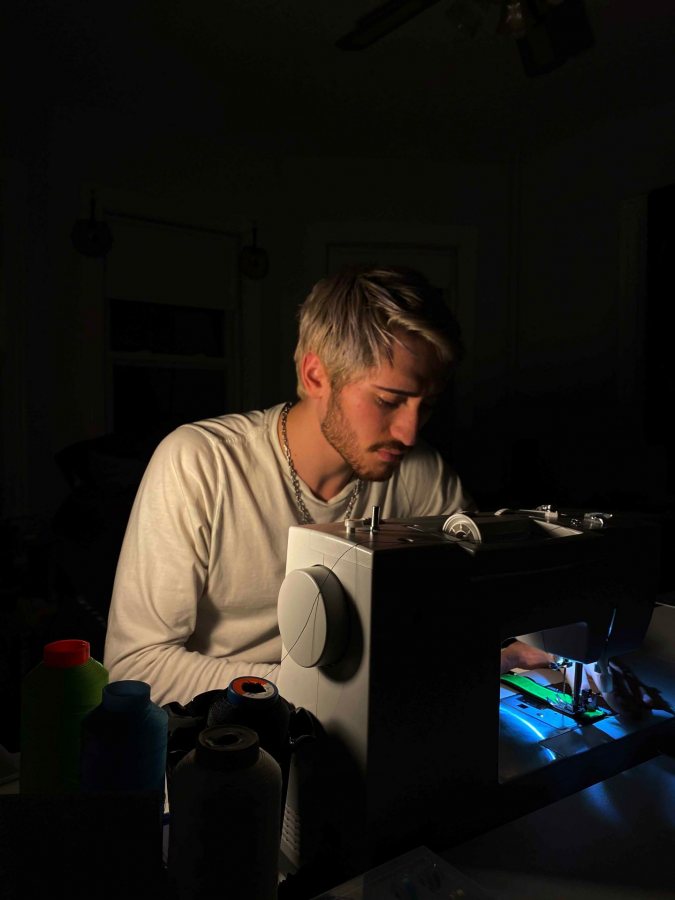
Garon Rothenberg ’20 uses his sewing machine at an off-campus house near Bates on April 15, 2020. (Jake Choi ’20)
“Gary wants to become a designer, and the quarantine has allowed time to focus on his work. Photography serves different purposes for different people. Most important, it serves as an agent that connects scattered memories into one and delivers a unique message to the audience, which unites all during this difficult time.” — Jake Choi ’20
Jackson Sell ’22
Hometown: Mill Valley, Calif.
Major: Psychology
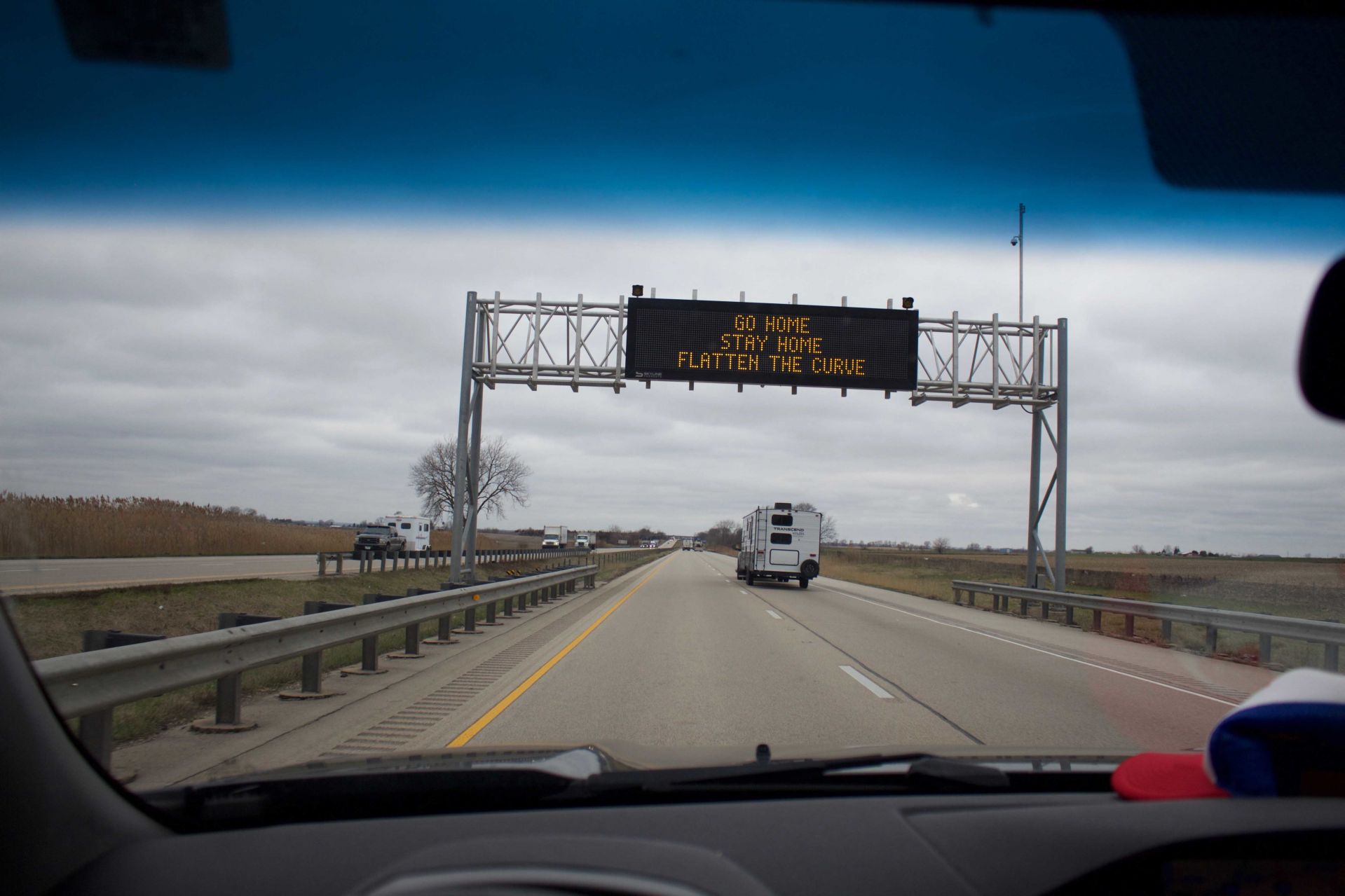
An Indiana Department of Transportation sign on I-80 tells drivers to “Go Home, Stay Home, Flatten The Curve,” on March 31, 2020. (Jackson Sell ’22)
“As I drove across the country, from Bates to my home, I saw how signs that typically display traffic information have been switched over to COVID-19 warning signs. This was when the weight of the situation really hit me. I saw signs that urged travelers to self-quarantine, or that cash was no longer accepted at toll stations, and others that said that we are ‘Stronger Together.’ It was truly eye-opening to see how rapidly everything was changing.” — Jackson Sell ’22
Jenna Beagle ’22
Hometown: Indianapolis
Major: Rhetoric, film, and screen studies; gender and sexuality studies
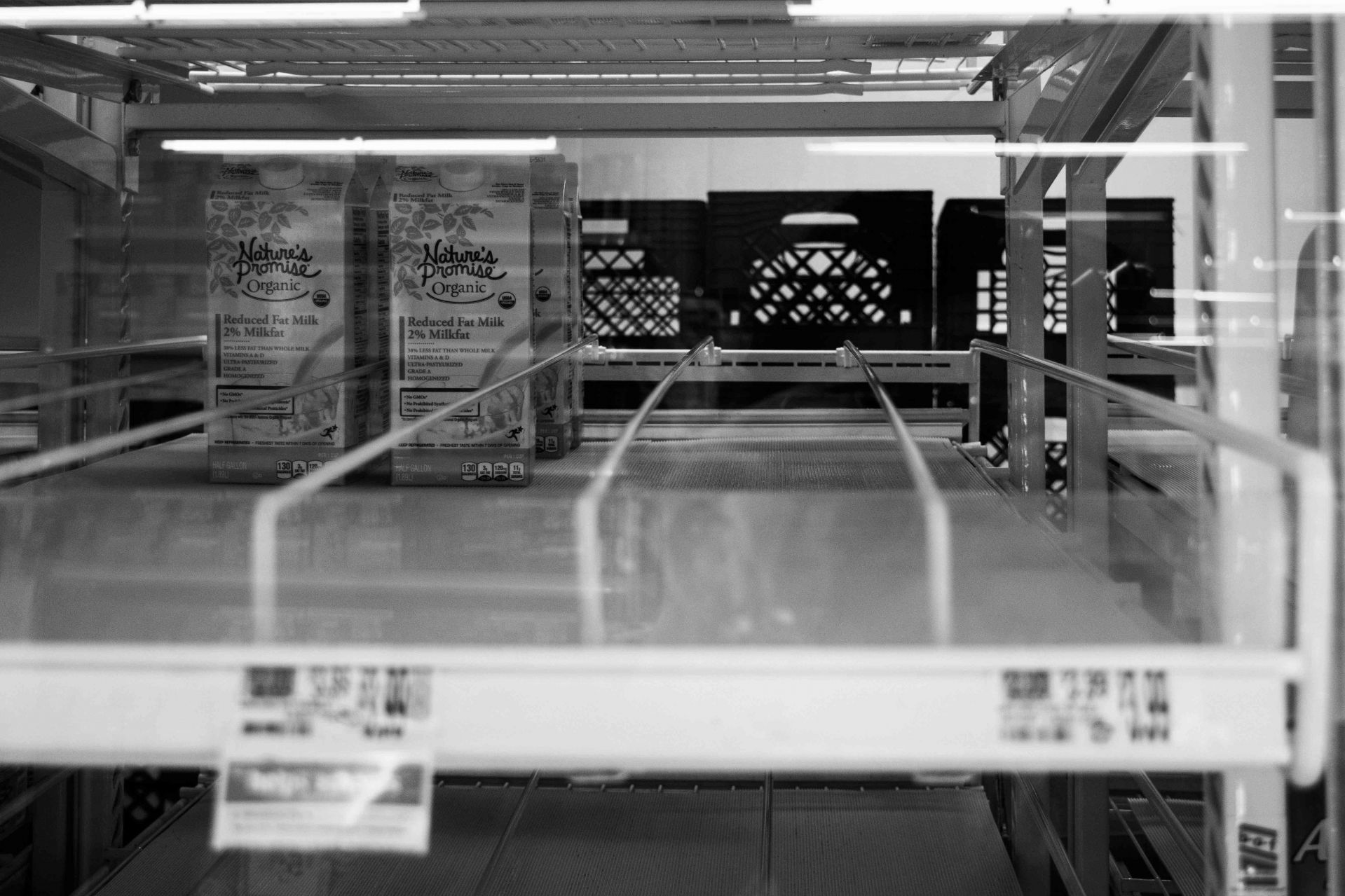
Cartons of milk run low in the dairy section of a Hannaford supermarket in Yarmouth, Maine, on April 11, 2020. (Jenna Beagle ’22)
“Life during the COVID-19 outbreak doesn’t seem real: empty shelves, masked faces, endless new rules and protocols. By editing my images in black and white, I attempted to give them a timeless quality to distance them from reality. These images prompt me to keep asking myself, ‘Is this really happening?’” — Jenna Beagle ’22
__________________________________________________________
Kyle Carter ’20
Hometown: Plantation, Fla.
Major: Psychology
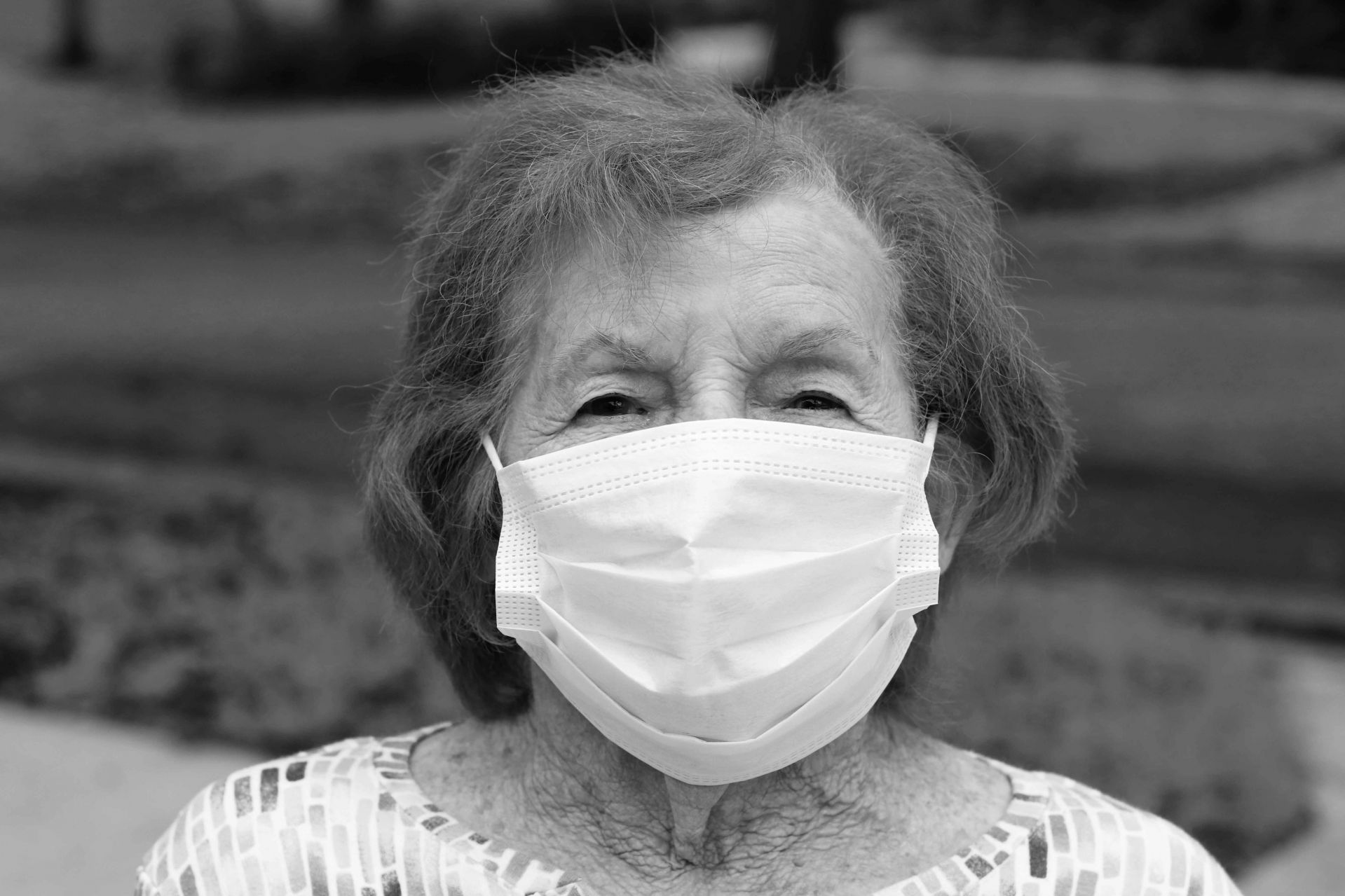
Wearing her mask, Pauline Petrin, age 92, sits outside after a walk around her neighborhood in Plantation, Fla., on April 17, 2020. (Kyle Carter ’20)
“This photograph is of my grandmother. It shows the experience of the COVID-19 pandemic through the eyes of a 92-year-old woman who is highly at risk.” — Kyle Carter ’20
Max Bartley ’22
Hometown: Presque Isle, Maine
Major: Psychology

Traffic flows past a sign indicating the closure of a Marden’s discount department store in Presque Isle, Maine, on April 4, 2020. (Max Bartley ‘22)
“The objective of this image, and the series it belongs to, is to convey both the solitude and unity that various closing signs represent. Each store had their own way of stating their closure. I wanted to capture this image because we are in such a unique time.” — Max Bartley ’22
Nick Charde ’22
Hometown: Concord, Mass.
Major: Art and visual culture (art history and criticism)
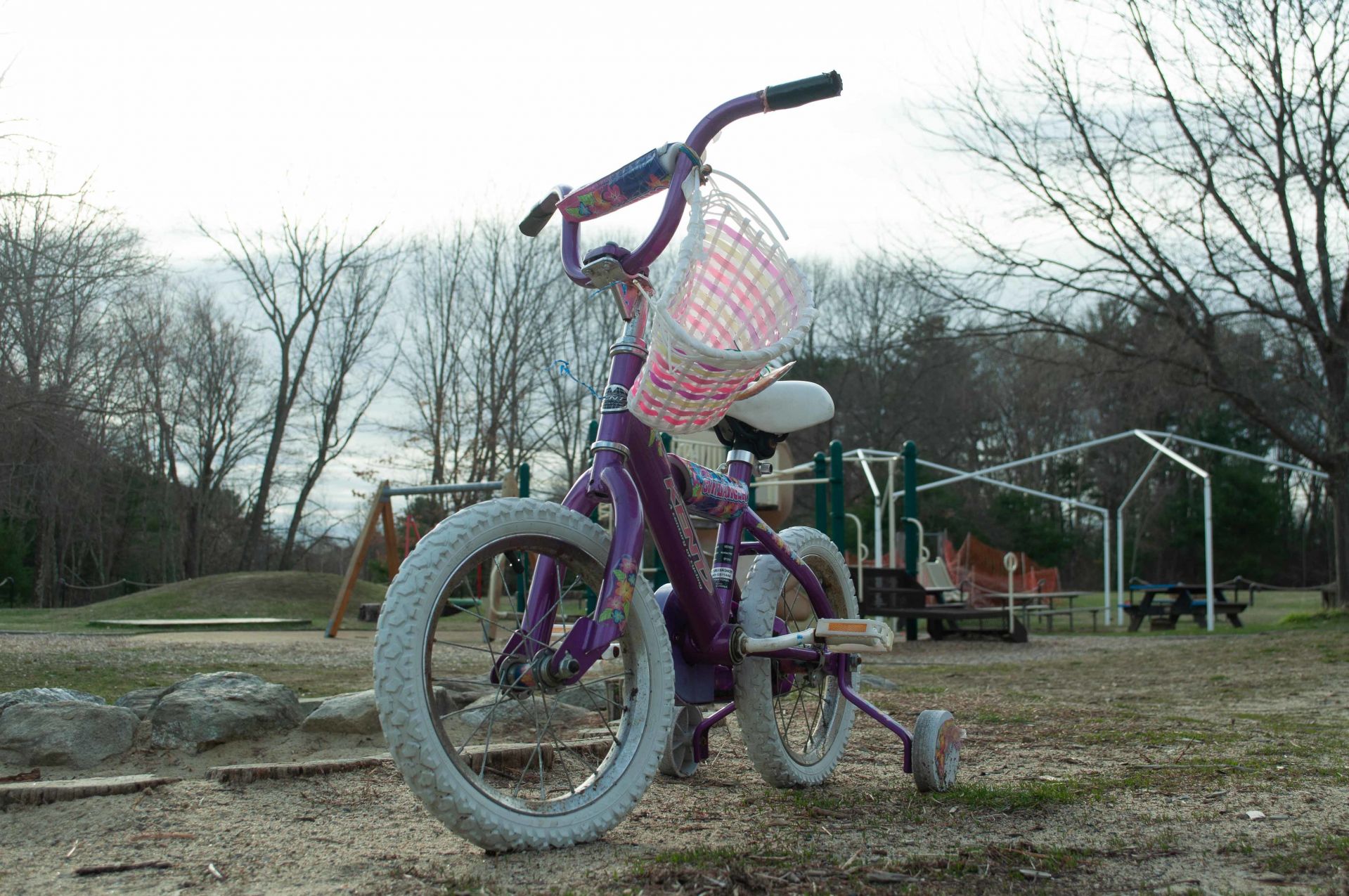
A child’s bike sits near the Ripley School playground in Concord, Mass., on April 21, 2020. (Nick Charde ’22)
“As I walked around an empty playground, this bicycle intrigued me. In this photograph, the bike’s placement suggests an unnerving sense of urgency, as if a child has been forced away from it, suddenly and unexpectedly. The photograph illustrates the disorienting and sudden shift to a new way of life. As the bicycle waits for a child to return, we wait to return to the lives we once knew.” — Nick Charde ’22

